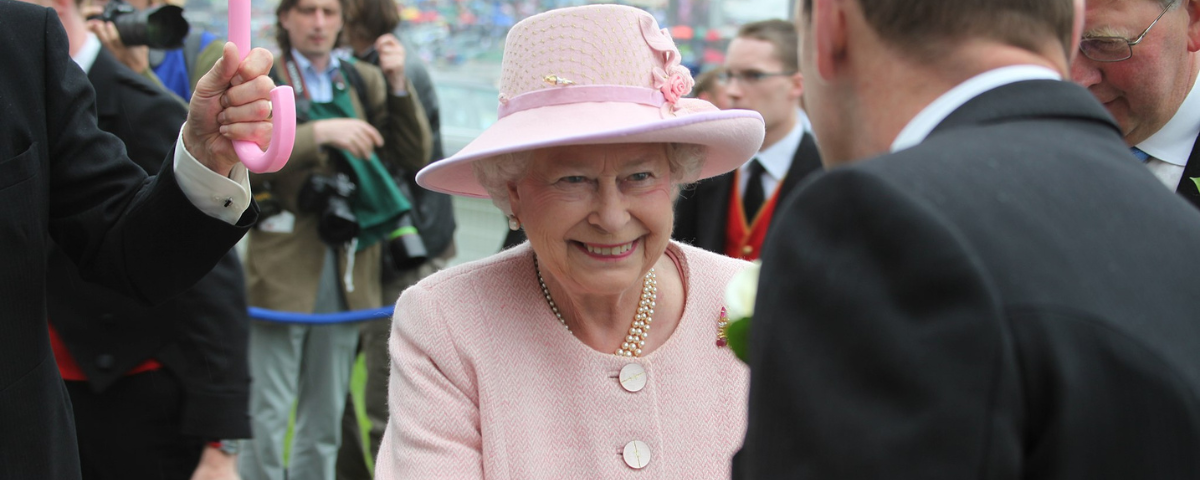Image taken by Nicolas de Camaret. Original image can be found here.
A new Culture Secretary and the death of a monarch puts the cultural impact of events into perspective for Mike Fletcher.
In a week when we lost an intrinsic part of British culture with the death of Queen Elizabeth II and new Culture Secretary, Michelle Donelan was appointed by incoming UK Prime Minister Liz Truss, it feels fitting to be writing about the culture of events.
Donelan has become the UK’s eleventh Culture Secretary in 11 years. She heads up a wide-ranging department responsible for the arts, media, sport and events, while promoting Britain’s cultural and artistic talents to the world.
No small task I’m sure you’ll agree. So whether or not she’ll find the time to walk the aisles of IBTM World at the end of November (especially with the FIFA World Cup underway in Qatar) remains to be seen.
If Donelan were to come to Barcelona for IBTM however, she’d see first-hand that exhibitions, conferences and face-to-face meetings are where business culture thrives.
She’d discover context for a BVEP report sitting somewhere on her desk at the DCMS, which states that, pre-pandemic the events industry generated £84 billion a year – with business events contributing over £18 billion in direct spend annually.
Plus, she’d witness how important the trade show environment is for facilitating interactions and connections between people across a wide spectrum of countries and cultures.
The Queen’s legacy in events
For me, culture is very much about a sense of place. Stories bring places to life and places and events attach special meaning to stories.
There’s no better example of this than the sentiment we’re seeing currently across Britain and the Commonwealth, as people share their stories and memories of Her Majesty, the late Queen Elizabeth II.
The Queen loved being involved in a wide range of events outside of her ceremonial duties. She attended her first Royal Ascot in 1946 and returned every year following her coronation, with the only exception being this year’s race meeting due to ill health.
She had 24 winning horses at Royal Ascot and made sporting history when, in 2013 she became the first reigning monarch to win the Gold Cup with her horse, Estimate.
The Queen wasn’t simply a willing event spectator either. Every summer, she would host three Garden Parties at Buckingham Palace and one at the Palace of Holyroodhouse in Scotland.
Annually, over 30,000 guests would spend a relaxed summer afternoon in her presence, enabling her to speak with a broad range of people from all walks of life to gain valuable insight into the changing cultures of Britain’s communities.
Not just a willing event spectator
Then, there were those cultural events the Queen was happy to take a more active role in.
Two examples that will forever make people smile were her afternoon tea with Paddington Bear for her Platinum Jubilee party, and the time she was escorted to the Opening Ceremony of the London 2012 Olympic Games by James Bond, before appearing to parachute into the stadium from a helicopter.
In his tribute to Her Majesty in Parliament the day after her death, former Prime Minister Boris Johnson revealed that the Queen thought it hilarious that one dignitary in attendance at the London 2012 Opening Ceremony actually believed her skydiving cameo.
James Bond actor Daniel Craig revealed that she was ‘ fun, incredibly game’ and that she improvised the bit in the skit where she pretends to write and ignores Bond’s entrance.
The cultural value of events
The Queen knew the true cultural value of events, reassuring the British people that we would ‘meet again’ during her televised address at the height of the Covid lockdowns.
It’s vital that as we navigate through an extended period of uncertainty and potential hardship for UK businesses, Culture Secretary Donelan also understands both the economic and cultural importance of face-to-face engagement and those companies that make it happen.
The events industry will shortly be called into action once again to ensure the smooth running of significant cultural moments in time when Queen Elizabeth’s funeral takes place at Westminster Abbey and King Charles III is subsequently crowned at his coronation.
It will mourn the loss of a much-loved Queen, pledge service to the King and continue to lobby a new British government on its vital role as today’s culture creators.
Do you agree? Have your say on social media with #culturecreates.
You may also be interested in…

